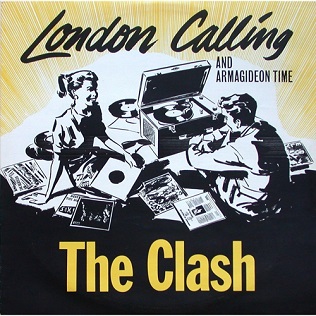When discussing The Clash, it’s impossible not to notice their broad impact on music, culture, and the political landscape of their time. From the punk anthems that captured the frustration of a generation to the genre-blending tracks that showcased their willingness to experiment, The Clash was more than just a band—they were a voice for those on the fringes, those who felt unheard.
The Clash’s ability to fuse punk’s raw energy with a wide array of influences is evident in their music. Take “London Calling”—a track that’s more than just a punk anthem. It’s a reflection of societal anxiety, wrapped in a driving beat that feels both urgent and timeless. The band’s versatility shines through in songs like “The Magnificent Seven,” where they flirt with funk and hip-hop influences long before these genres were a staple in the UK music scene.
Lyrically, The Clash didn’t shy away from tackling heavy subjects. “Straight to Hell” is a haunting commentary on the Vietnam War and its aftermath, delivered with a melancholic melody that contrasts with the harsh realities it describes. The song touches on the plight of Amerasian children left behind after the war, the struggles of immigrants, and the broader theme of displacement. It’s a powerful indictment of the consequences of conflict, wrapped in a deceptively simple tune that lingers in the mind long after it’s finished. On the other hand, “(White Man) In Hammersmith Palais” critiques the music industry’s commercialization of reggae while addressing racial tensions in Britain and the disillusionment with the punk scene itself. The song’s narrative spans from a night out at a reggae concert to a broader reflection on cultural appropriation and social injustice.
Beyond these tracks, The Clash’s lyrics explored a wide range of topics, from economic struggles and political corruption to personal freedom and the fight against oppression. “Spanish Bombs” delves into the Spanish Civil War and the persistence of fascist ideologies, while “Career Opportunities” critiques the lack of meaningful employment for young people in Britain. Songs like “The Guns of Brixton” speak to police brutality and the simmering anger in disenfranchised communities, while “Rudie Can’t Fail” celebrates youthful rebellion and the defiance of societal expectations. The band’s willingness to confront such diverse and often difficult subjects set them apart, making their music not just a soundtrack for a generation, but also a powerful commentary on the world around them.
While they were undoubtedly political, The Clash also knew how to craft catchy, radio-friendly hits. “Should I Stay or Should I Go” and “Rock the Casbah” are prime examples—tracks that not only conquered the airwaves but also highlighted the band’s knack for writing hooks that stuck with you long after the music stopped. Yet, even in these more accessible songs, there’s an undercurrent of defiance, a reminder that The Clash were always more than just pop stars.
In their relatively short career, The Clash produced a body of work that continues to resonate. Whether it’s the rebellious spirit of “White Riot” or the introspective loneliness of “Lost in the Supermarket,” their music speaks to a wide range of human experiences. The Clash may have disbanded decades ago, but their influence persists, a testament to their enduring relevance in the world of music.
